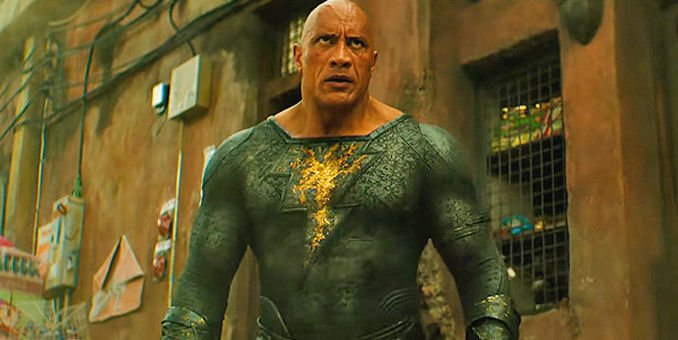
In the desert country of Khandaq, archaeologist Adrianna Tomaz races to find the hiding place of the fabled Crown of Sabbac, a legendary item of untold magical powers, from Intergang – a criminal organization found throughout DC Comics who frequently use high-tech equipment as sort of a techno-Mafia – who have forcibly taken over the country. Although she finds the Crown, Adrianna is betrayed by a member of her team. Just before that person can kill her, she is saved by Teth-Adam, a former Khandaqi slave from 2600 BC who was given superpowers by a council of wizards in order to overthrow a despotic ruler of the time, but was then magically imprisoned once those powers began to corrupt him, whom the archaeologists accidentally free from his eons-long slumber. Adrianna sees Adam as the potential liberator of Khandaq, while he is not so sure. The United States, however, sees him as a potential global threat and dispatches four members of the superhero team the Justice Society to investigate.
(Yes, the Black Adam character does tie into DC’s Shazam character, who was much more effectively brought to the screen in 2019’s Shazam!. It is not an impediment if you’ve missed that one, the references to it here are fairly oblique and don’t impact the story. But honestly, Shazam! is the better and more enjoyable of these two films and you may be better off with it.)
Although the character of Black Adam was created in 1945 by writer Otto Binder and artist C. C. Beck, the film is pulling most of its inspiration from the more modern interpretation of the character that was fleshed out by writers Jerry Ordway and Geoff Johns in various comics titles in the late 90s and early 2000s. Initially the character was nothing more than the bad guy version of Shazam. The work they did on the character added shading and depth, transitioning him from a straight-up villain to more of an anti-hero. Black Adam is a man whose strict and authoritarian values are literally out of time with the modern world. He is someone with the powers of several gods at his disposal, but with severe emotional and anger issues that drive much of his actions. And the script does seem to at least hit the proper story points to let us know all of that. However, the film fails in the execution of those beats.
Dwayne Johnson is certainly an imposing figure on screen. His film career has played on both his physical size and a certain type of charm. However, for Black Adam he needs more than just that to get the character over. While Johnson can look ferocious and mad, he doesn’t mix in the emotional elements that drive that anger. Johnson’s glare could possibly melt steel, but we never get the inner grief, anger and frustration that fuel it. There is a great tragedy to this character, and the film and Johnson never really dig into that emotional core.
The screenplay does a good job of filling the unfamiliar in on the new superheroes from the Justice Society on the run. They’re broadly sketched, with the exception of the Hawkman and Dr Fate friendship, but the actors managed to flesh out what they are given. And the characters of Adriana and her son Amon provide a solid grounding that Black Adam needs for his character’s arc.
Interestingly enough, the film suggests some critique of US foreign policy. The fact that no one had come forward to free Khandaq and its people from the occupying Intergang feels like a critique of a foreign policy that only engages in regime change when there is material gains be had for the United States, and not simply as an espousement of one’s stated philosophy about democracy. The movie doesn’t dig into this all that much at all, but it lurks just below the surface for those looking for some, or indeed any, depth here.





